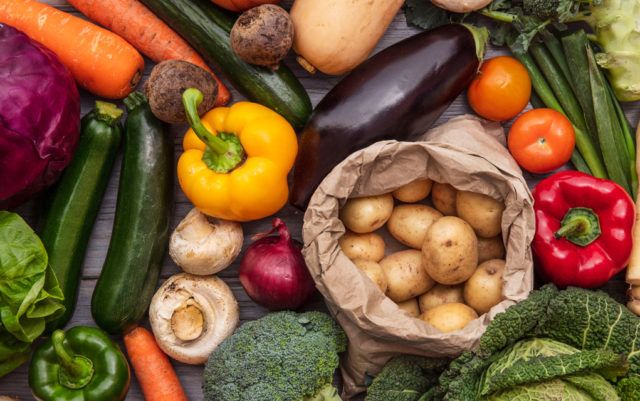
About 13% of early childhood centers reported in May, in the middle of the pandemic, that they struggled to afford enough food for the children in their care. Enrollment at early childhood centers and preschools has dropped significantly, increasing the financial burdens on those establishments, and further imperiling their ability to make sure the children in their charge are well-fed.
But one collaborative program — between Boulder County Public Health, Boulder County Farmers Markets and local farms — helped those establishments caring for kids ages 6 months to 5 years old get access to local produce, all while teaching the kids about gardening, agriculture and eating healthy.
The Farm to Early Care and Education (Farm to ECE) program distributed local, fresh produce to 68 early childhood centers this summer. Heather Hauswirth, Farm to ECE program specialist, says that’s up from the initial group of four recipients in 2016, when the program launched after the County recognized a need to get good food into the hands of more of the area’s youngest residents.
“There have been a lot of studies and research that [we] looked into that cited especially low-income kids had less access to fruits and vegetables, so we were trying to figure out a way to provide opportunities,” Hauswirth says.
Early childhood centers can enter the program if they meet a few criteria, Hauswirth says: They have to have a garden on-site, for educational programming; they have to be willing to run nutritional educational activities; and they have to either offer a sliding tuition scale or work with the County’s Childcare Assistance Program, which provides financial assistance to low-income families.
Hauswirth says there are more applicants every year than the program has funding for, but the hope is to expand it to 75 centers next year. Funding comes from the City of Longmont’s Human Services Fund and the City of Boulder Health Equity Fund, which is filled, by the way, from revenue on the sugar-sweetened beverage tax voters passed several years ago.
The program bought food from four farms this year, via their CSA programs, so essentially each center got one share of a CSA. Ollin Farms, in Longmont, provided food for centers in Boulder; Browns’ Farm served Longmont; and Cure Organic Farm and Milk + Honey Farm provided food for East County and Nederland.
Centers that participate in the program can use the food in a variety of ways, Hauswirth says. The County provides lesson plans throughout the summer that offer a month’s-worth of activities at a time. Centers are encouraged to use the food for snacks, or in tastings, or to send home to families if they don’t offer a food program.
“We have been able to send a few items home with the parents at the end of the week, and they have been extremely grateful to incorporate these fresh veggies into their dinners,” says Micheline Zawacki, director of Longs Peak Learning Center in Longmont, a Farm to ECE program recipient. “Their children have been eating them, participating in cooking, and trying the new vegetables at home because of the new exposure at school.”
In the past, the Farm to ECE program has provided market bucks for programs to spend at the farmers market. Hauswirth expects more collaboration with local farms in the future, spreading the benefits to more farmers in the local ag community and to more early childhood centers.














